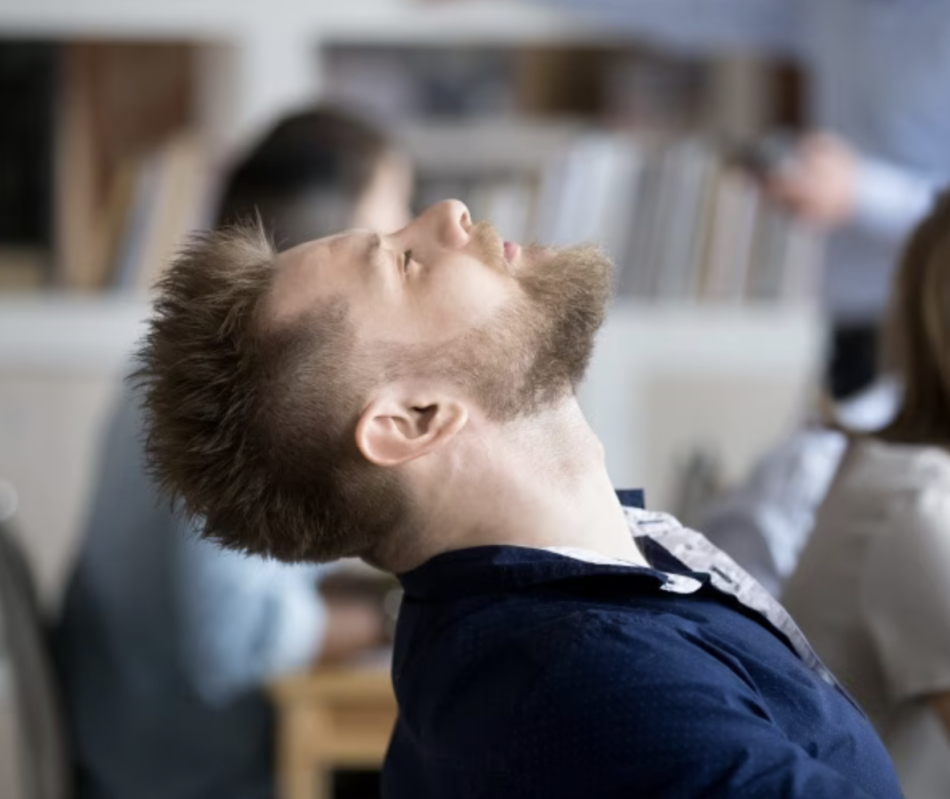Why we’re sleepy at the same time every day
By Lynn Allison From Newsmax

Dreamstime
Do you tend to feel tired at the same time each day? Many people have a specific time of day that their energy lags, sometimes to the point of exhaustion or needing a nap. Experts say there are many potential reasons for this. Having a daily slump can be triggered by:
• Your circadian rhythm. According to HuffPost, our 24-hour internal time clock varies from person to person and controls many physiological functions, including sleep-wake functions.
Editor’s Note: Fight Fatigue With This Doctor’s Secret Weapon
• Your daily patterns. Daily routines, including workouts, work and other items on your schedule can affect when you feel more tired than awake, says Theresa Schnorbach, a psychologist and sleep scientist. “There could be a habitual element involved, where the body ‘learns’ a routine and associates specific time with sleepiness,” she says.
• Your chronotype. Jeff Kahn, co-founder of Rise Science, makers of the sleep and energy tracker app Rise, says that that a daily energy dip around 2 p.m., may be influenced by whether we are morning people or ‘night owls’ or something in between.
• Certain health conditions. Hypothyroidism, chronic fatigue syndrome and hormonal imbalances can make you sleepy at times. If you have other symptoms along with tiredness, check them out with your doctor.
• Distractions. The light from your phone or other device, jet lag, shift work and too much caffeine can interfere with regular sleep and cause daytime sleepiness.
• Lighting. Schnorbach says that natural light helps to regulate energy levels, while artificial or lack of light can disrupt them, causing unusual tiredness at specific times. For example, a nurse may be wide awake at 1 a.m. under harsh hospital lights but be exhausted by mid-morning.
• Our eating habits. What we eat and how much we consume can affect our sleepiness. We feel tired after a huge Thanksgiving dinner (partially thanks to the tryptophan in turkey), but certain foods like dairy products, spicy foods, sugary snacks and salty snacks make sleep more challenging so should be avoided in the evening.
Experts note that for some reason, probably an evolutionary trait, people tend to feel sleepy around 2 p.m. According to Kahn, that is most likely the safest time to nap for most people, since it won’t interfere with your regular nighttime routine.
But according to HuffPost, there are other factors to consider. If you didn’t get a good night’s sleep the night before, take an earlier nap. And if you are traveling to different time zones, plan your nap accordingly. If you’re napping for enjoyment and because you can, a 10-20-minute nap at 2 p.m. is the ideal recipe to fight fatigue.
Kahn advises allowing for 90 minutes after your siesta to clear away the “sleep inertia,” that groggy feeling, before you tackle an important meeting or need to be behind the wheel. Avoid taking a nap within a two-to three-hour window before bedtime so you won’t have a problem getting and staying asleep.
Taking an afternoon nap can not only recharge your batteries, but new research says it’s also good for your brain. A recent study found that daytime napping could slow the rate at which the brain shrinks as we age. The researchers found that brain volume between people who napped regularly and those who didn’t was equivalent to 2.6 to 6.4 years of aging, according to Sky News.
Senior author Victoria Garfield, from University College of London (UCL), said “our findings suggest that for some, short daytime naps may be part of the puzzle that could preserve the health of the brain as we get older.”
Previous research has found that people who take naps perform better on cognitive tests taken after they snooze. Other studies have suggested that self-reported habitual daytime napping is associated with lower Alzheimer’s disease risk, so take a short nap guilt-free if you are able.
If your prefer to avoid the inevitable daytime energy dip in the afternoon, Kahn suggests adopting good sleep practices for sleeping and wakefulness, and sticking to a regular schedule, even on weekends. If those tips don’t work, experts suggest considering a sleep evaluation to determine if a bigger sleep issue may be present.
© 2023 NewsmaxHealth. All rights reserved.
For more on thi story go to: NEWSMAX




